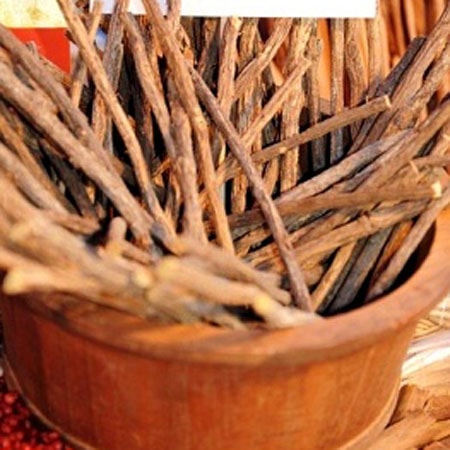Licorice – An effective medicinal herb for treating stomach ulcers
Many physicians trust licorice over antacids in treating stomach ulcers in their patients.
In addition to being used as a refreshing drink to cool the body, licorice is also considered a medicinal plant that is very beneficial to health.
- Treatment of gastric ulcers:

According to studies, 91% of patients successfully treated stomach ulcers using licorice. However, treatment of stomach ulcers should continue for 8-16 weeks after the disease is completely cured.
Licorice should be eaten/ or drunk about 20-30 minutes before meals for more effective treatment of ulcers because at that time licorice will act as a lining in the stomach, thereby helping to protect your stomach.
Additionally, licorice helps maintain the acid level in the stomach thereby effectively controlling body weight.
- Treatment of respiratory diseases:Licorice has anti-allergic properties which are essential for treating respiratory disorders in children and adults.
-Anti-inflammatory effects:Licorice contains a lot of cortisone - a very benign anti-inflammatory and anti-allergic hormone with no negative side effects.
- Fever reducer:When combined with other herbs such as perilla, perilla leaves, chrysanthemum, honeysuckle, ginger... licorice helps to cool down and reduce fever and colds.
- In addition to the common effects above, licorice is also considered aprecious natural medicine to support the treatment of diseaseslike:
- Genital herpes
- Cirrhosis
- Hepatitis
- Arthritis
- Premenstrual dysphoric disorder
- Menopausal syndrome
- Reduce blood sugar
- Laxative
- Diuretic
Warning:
People with high blood pressure or kidney problems should not eat/drink licorice.
This is because taking too much licorice can cause water retention and high blood pressure. If this is the case for you, these side effects can be reduced by increasing your potassium intake and reducing your salt intake!
For normal people, you should only use licorice at the recommended dose of 1 - 2 grams/licorice root/day or 0.25-0.5 grams of extracted licorice.
According to Afamily - NT






